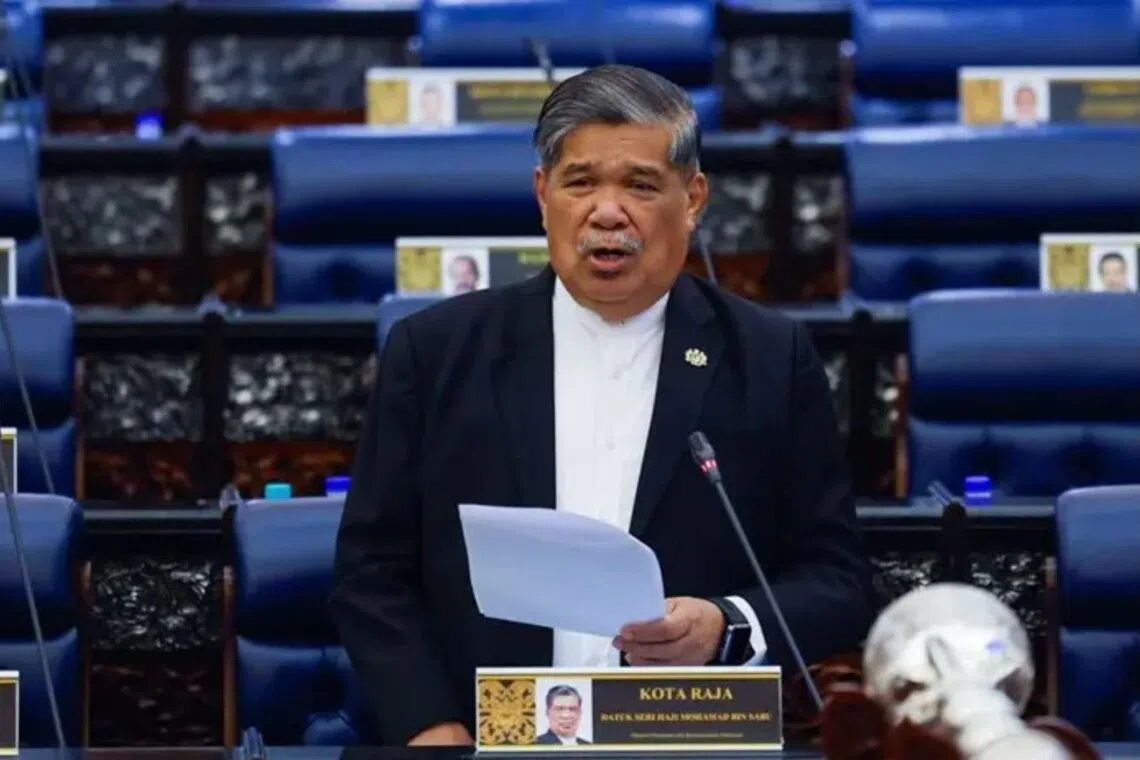Local food production up but Malaysia still import-dependent, says minister
Sign up now: Get insights on the biggest stories in Malaysia

Malaysia’s import dependency remains high for rice, chicken and several types of vegetables, says Agriculture and Food Security Minister Mohamad Sabu.
PHOTO: THE STAR/ASIA NEWS NETWORK
Follow topic:
KUALA LUMPUR – Malaysia remains heavily dependent on imported food despite improvements in local production, says Agriculture and Food Security Minister Mohamad Sabu.
Citing the Statistics Department’s Self-Sufficiency Ratio (SSR) 2023 report, he said the self-sufficiency level stood at 56.2 per cent for rice and 90.2 per cent for chicken, reflecting slight declines from previous years.
“However, there were encouraging increases recorded for meat and fresh milk,” he said.
On the other hand, the Import Dependency Ratio (IDR) for beef, buffalo meat, mutton, fresh milk and certain vegetables such as chillies showed a downward trend.
Datuk Seri Mohamad said import dependency remained high for rice, chicken and several types of vegetables, underlining the country’s continued reliance on foreign food sources.
“These figures show that our dependence on imports is still significant, although the SSR for chicken, eggs and vegetables has improved,” he told the Dewan Rakyat, Malaysia’s Parliament, on Nov 10.
He was responding to Mr Aminolhuda Hassan, who had asked about the country’s level of food security in the event of unforeseen circumstances such as restrictions on food imports, particularly for basic goods like rice, wheat, sugar, chicken, meat, milk and vegetables.
As at Oct 21, Malaysia’s rice stock stood at 1.19 million metric tonnes – comprising 990,308 metric tonnes of commercial stock and 200,000 metric tonnes of buffer stock – sufficient to meet national demand for six months.
Mr Mohamad said the projected chicken production as at October 2025 was about 70.65 million birds, indicating a stable supply.
To strengthen food security and reduce reliance on imports, several initiatives are being implemented, including improving mechanisms within the paddy and rice industry.
“Whenever I go on field visits, almost half are focused on paddy. Rice is our staple food, and we need strong cooperation between the federal and state governments to increase production,” he said.
Mr Mohamad added that Malaysia would continue importing certain raw materials and meat products through existing trade partnerships and memorandums of understanding with other countries.
He said the government was intensifying efforts to boost cattle breeding and ruminant development programmes, with a target of achieving 50 per cent self-sufficiency in beef by 2030.
“At the same time, our dairy industry is expanding rapidly, especially under Farm Fresh and F&N, which operate large-scale dairy farms. We expect to reach self-sufficiency in milk production soon,” he said.
Mr Mohamad said Malaysia’s aquaculture industry was also progressing steadily, with ongoing efforts to improve broodstock quality and farm productivity.
“We are moving towards a satisfactory level of self-sufficiency in aquaculture, though more effort is needed to strengthen it further,” he added. THE STAR/ASIA NEWS NETWORK

